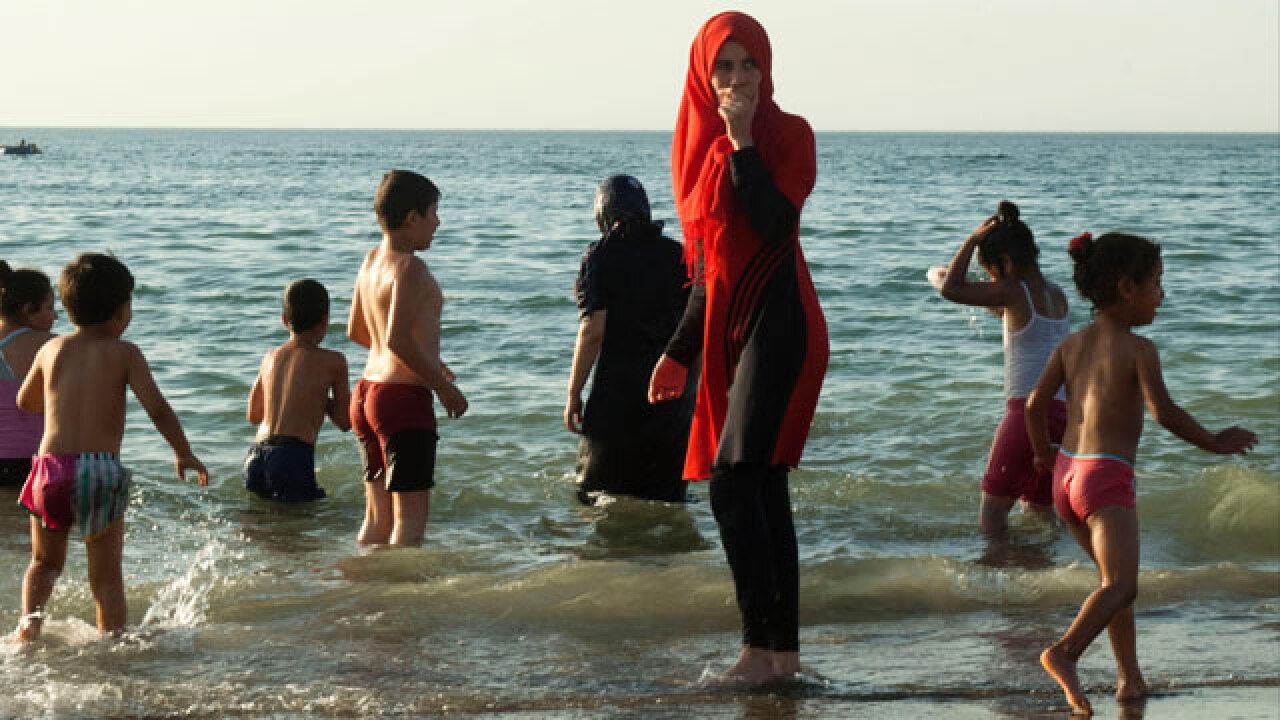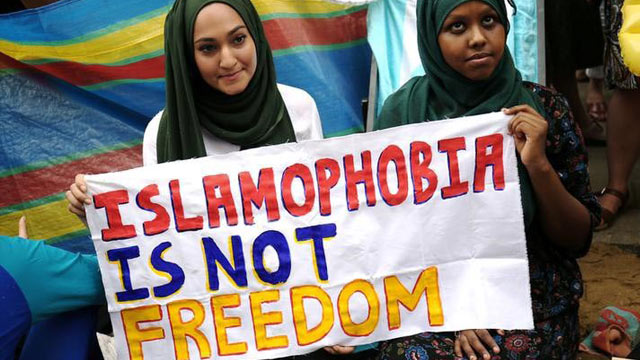
Secularism, in the western sense of the term, means separation of religion and state. It mandates non-involvement of religion in the activities of the state. In France however, secularism is much more than a maxim. It is part of the core identity of the French Republic.
But in fairly recent times, France’s brand of secularism has assumed a far more dogmatic form. All kinds of religious symbols are banned in public, and what constitutes a religious symbol is being interpreted in a progressively wider sense. Hence the ban on the niqab, and now, in some towns on the burkini.
One of the official reasons given for the ban on the burkini is that it constitutes a security threat. It is indeed very difficult to understand what this means. If it is simply easier to carry around concealed weapons in a full-body suit, can this also not be said of other kinds of clothes – like tracksuits and the like which cover the entire body? The burkini does not even fit the definition of a niqab, which covers the person’s face in addition to their body – so there is no question of concealment of identity.
French officials also seem to think that the burkini is anti-secularism. But secularism is far more about separating religion from politics than it is about making the populace adhere to a particular lifestyle. It is enough to believe that one must not impose one’s religious beliefs on others. It is not necessary to abandon the practice of religion – or indeed, avoid wearing religious clothing in public. But France clearly thinks that the people must actively demonstrate their commitment to its brand of secularism. In essence, they must display their disapproval of religion, which in France, is not just meant to be separated from the state, but considered a liability.
However, it is the third justification provided for the burkini ban that is the most puzzling. Apparently, banning full body covering is essential to protect the freedom of women.
Secularism might be interpreted to mean not just separation of state and religion, but also precedence of state law over religious custom. But such multiple meanings cannot be derived from the idea of freedom. Freedom means the ability to choose – your thoughts, beliefs, actions and affiliations. Freedom can never become dogma because that would be antithetical to its very meaning. Freedom cannot be imposed – one cannot be forced to be free. The French state, by telling women what freedom means, takes away the very freedom it seeks to provide. Freedom becomes a doctrine or an ideology, and thus defeats its own purpose.
France is not Saudi Arabia or Iran, but alas, its secularism has become justification for egregious acts of misogyny – such as forcing a woman to remove her burkini in public. It is incredible though that in 21st century Europe, a significant section of the French population does not think this to be an act of pure sexism. Here we see how the transformation of the idea of freedom into a doctrine ends up creating new and pernicious forms of discrimination – and as usual, women are some of the worst affected.
It is significant that these bans are being put in place at a time when Europe is reeling from frequent terror attacks as well as an influx of refugees. There is little doubt that increasing far-right xenophobia has not just influenced public opinion, but also made it easier for officials to institute discriminatory legislation.

AFP Photo
However, there is another side to this story, which must not be ignored because of our rightful indignation at the recent events in France. While it is essential to uphold freedom of choice for all, it is also necessary to recognize that France and the rest of the ‘progressive’ west has an added responsibility to uphold this freedom precisely because it is much preferable to slavery. In other words, the ideals of freedom of expression, gender equality, secularism and democracy are simply better than religious or cultural ideas which seek to impose a certain way of life on people. Thus our anger at a ban on the burkini in France, or an act of anti-Muslim hatred in any other part of the west, is an acknowledgement that the ideals these countries claim to uphold are of a superior nature.
It then follows that we do not confuse the wearing of a burkini with the propagation of women’s freedom, as some on the Left have regrettably done. Wearing a burqa or a burkini is an act of pre-censorship, one that promotes the idea that a woman is responsible for her own safety from men who, by nature, cannot control their carnal urges. It gives credence to the belief that women’s bodies are irresistibly attractive and hence shameful if exposed in public. Religious conservatism dictates that women must uncover their bodies only before certain members of their family, thus reinforcing the idea that women’s bodies are commodities for use by men. This is a thoroughly masculine view of sexuality, completely exclusive of the desires and aspirations of women. Essentially, wearing a burqa or burkini reinforces patriarchy – by creating a pathway to ‘freedom’ for women within the framework of the existing dogma.
But recently, the inventor of the burkini, Aheda Zanetti, also claimed that the outfit has nothing to do with Islam, since it can be worn by anyone. This is obviously a ridiculous suggestion, a poor defence against the allegation that the burkini contravenes France’s secular laws.
But then there may be those who disagree with our idea of what constitutes women’s freedom. Since they are entitled to their views, we are obliged to permit them to wear the clothes they wish to wear, and the lifestyle they prefer to lead. In a free society where individual liberty is staunchly defended, the supremacy of secular state law over religious custom must not extend to the personal sphere. Religious freedom becomes a problem only in two instances – one, when it seeks to override or co-opt secular law for the supposed satisfaction of a certain community, and two, when the doctrine it is based on is used against another person who is unwilling to submit to its jurisdiction.
The presence of Sharia courts in Britain is anti-secularism because it creates a parallel legal system that is not as equitable as the British legal system. Allowing marriage of minors in the name of religious freedom leads to imposition of religious doctrine on people incompetent to understand its ramifications. But wearing a burqa or burkini by choice does not fall into either of the categories.
The secular state must ensure that its modern, non-religious legal system is not compromised by the parallel operation of religious laws. It must also ensure that the practice of religion is entirely voluntary for each individual, even if a certain religious doctrine deems itself to be obligatory upon everybody.
But extending the ambit of secularism to cover personal choice not only defeats the purpose of secularism, but also conflates a person with an ideology. In other words, Muslim women who are prevented from wearing the burqa or burkini are identified with a backward, misogynistic ideology instead of what they really are – human beings. This destroys the very foundation of secular democracy, because, like the discriminatory systems which preceded it, it then fails to make a distinction between bad ideas, and people who may believe in those ideas for what they consider to be good reasons.
The west has often been hailed as the torchbearer of tolerance and freedom. One must not forget, however, that the demographics of western society are undergoing significant change over the past few decades. The influx of both refugees and job-seeking migrants, and the low population growth rate of Caucasians (mostly Christians) compared to those of Asian or African descent (mostly non-Christians) are two factors which are changing the nature of western society. Homogeneity is being lost even as cultural differences become more acute. The real test of the progressive nature of western civilization is now – can it integrate those whose beliefs and attitudes towards life are different, and thus create a peaceful, yet composite society while retaining its core ideals which are so invaluable for the progress of humankind?